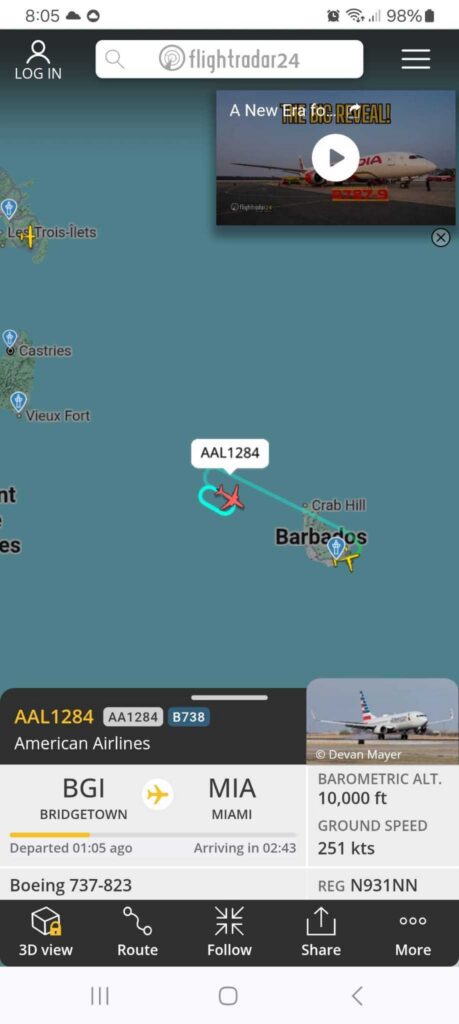Maintaining a schools’ programme by training scores of fifth formers annually, something that the Small Business Association (SBA) has done since 2009, is no small feat.
Cognisant that marketing and innovation are key functions of business, the SBA jumped at the opportunity to collaborate with partners to develop the National Vocational Qualification (NVQ) in Small Business Entrepreneurship Level 2, to add value to its schools’ programme.
The NVQ was recently rolled out amongst 75 fifth form students from several secondary schools, with 68 of them completing the programme and being deemed competent to receive the qualification. For the first time in the local education system, students were able to access a new qualification certifying their entrepreneurial training.
It is a truism that the country’s young people are brimming with ideas, from hand-crafted goods to digital services with global reach. The question remains: How do you turn these ideas into something tangible and ensure the ideas are not just passion, but recognised skill? This NVQ, administered by the SBA and certified by the TVET Council, has proven to be that initiative which offers young people something fresh: a practical, certified pathway into business — not just in theory, but in competence.
For a student in secondary school, the NVQ does more than fill a curriculum slot.
The eight mandatory units of the qualification — covering retail products and services, small business planning, sourcing and managing finances, using business technology, sustainable business operation, workplace communication, health and safety, and working in culturally diverse environments — reflect the real demands of operating a business in Barbados today.
Imagine Maria, 17, in Speightstown. She attends a local secondary school and has long been selling handmade jewellery online. Thanks to this new NVQ, she can now attach her informal business acumen to a nationally recognised certificate. She refines her business plan, learns how to manage finances, develops a tech-savvy approach to selling, and integrates health and safety standards into her workspace. By completing the programme, she holds both a digital storefront and a credential that signals competence to suppliers, lenders and partners.
Why it matters (students and the national economy)
Micro, small and medium enterprises (MSMEs) dominate the Barbadian private sector. Research shows that 92.2 per cent of formal enterprises in Barbados are micro or small, and that MSMEs generate nearly 48 per cent of private-sector employment. This is not a niche, it is the economy.
For students, the NVQ bridges the gap between academic study and the real world of commerce. Whether they ultimately start their own business, join the family trade, or enter employment in a larger company, the entrepreneurial mindset is now recognised, not just encouraged. The certification formalises what many young Barbadians already do informally, that is, create, innovate, and lead, but elevates it with structured competency and credibility.
Too often, entrepreneurial education ends with a business idea and a presentation. The NVQ changes that, as it expects candidates to demonstrate actual competency. That shifts the narrative from “could I be an entrepreneur?” to “I am qualified in entrepreneurship.”
As students complete tasks anchored in real-life business functions, they cultivate confidence and credibility. They gain experience in planning, finance, technology, sustainability and communication. These are leadership muscles. They learn to ask: How will I source finance? Who is my customer? How will I run this business profitably? How do I communicate across cultures? These are not textbook questions; they are pragmatic questions.
For the economy of Barbados, this means that the next generation of business owners will be better equipped. They will bring certified competence, not just enthusiasm.
Regional comparison
Across the Caribbean, NVQ and Caribbean Vocational Qualifications have become powerful tools for workforce development. Jamaica’s HEART/NSTA Trust certifies tens of thousands annually in fields ranging from hospitality to ICT. Entrepreneurship training is typically embedded within broader technical programmes, often offered to post-secondary or adult learners rather than integrated into the secondary school curriculum.
Similarly, in Trinidad and Tobago, the National Training Agency (NTA) provides CVQs in business-related fields, but its entrepreneurship modules are primarily targeted at older cohorts, particularly those already working in industry or enrolled in tertiary education.
What sets the Barbados NVQ in Small Business Entrepreneurship apart is its direct engagement with students at the secondary level. Unlike many regional programmes, this NVQ was designed through partnership with the SBA and industry players, with a specific focus on nurturing entrepreneurial thinking early. It positions entrepreneurship not as an afterthought to technical education, but as a standalone, certified competency.
This early intervention model provides young people with both skills and credentials before they enter the labour market, giving them a tangible head start and establishing Barbados as a regional pioneer in youth-focused entrepreneurship certification.
The NVQ is deliberately practice-driven, aligning with the entrepreneurial realities of Barbados’ MSME landscape. It recognises the informal business activity that already exists among young people, whether online sales, creative industries, services or small trading, and offers a way to validate and strengthen those skills.
A call to students, parents, partners, and policymakers
To students: the NVQ is not just another qualification. It is an entrepreneurial passport.
To parents, educators and mentors: this is a chance to nurture entrepreneurship from within communities.
Finally, to policymakers and business-community partners: the NVQ in Small Business Entrepreneurship is a clear signal. It shows that Barbados is serious about youth, innovation and growth. The next step is to match certification with resources, investment, mentorship and opportunity.
The NVQ in Small Business Entrepreneurship is more than a credential, it is a launch pad for Barbados’ future business leaders. It offers students tangible skills, real-world relevance, and regional mobility. It equips them to step beyond the classroom, to create businesses, drive innovation, and build futures.
The post Celebrating the first student cohort in the Entrepreneurial NVQ programme appeared first on Barbados Today.


